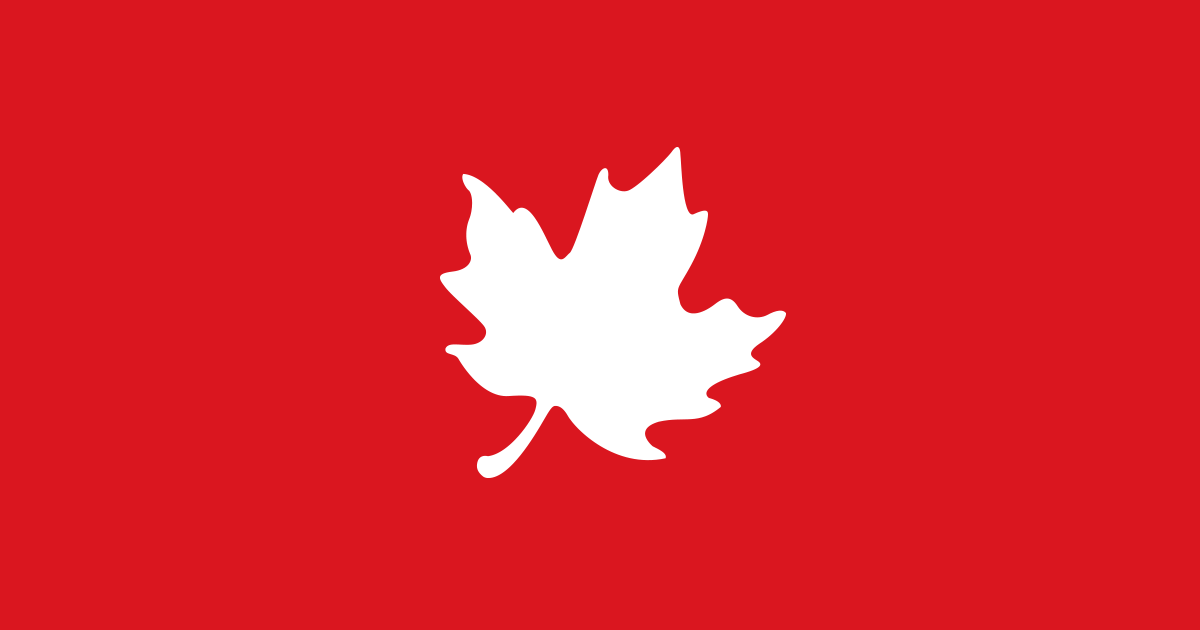Real eState
Number of Brantford home sales increase in spring market
|
|


With the weather warming up, so is the local real estate market.
April proved to be a busy month, said David DeDominicis, president of the Brantford Regional Real Estate Association, with 195 homes sold, an increase of 10.8 per cent over March.
The County of Brant saw a decrease of 7.4 per cent in home sales from March to April, while Brantford’s sales rose 16.4 per cent.
“It’s a positive sign that sales continue to increase month over month,” said DeDominicis. “But we need to stress that supply is still a large issue. In April of 2022, we saw 514 new listings. This year, we only saw 360. With prices leveling off, we are seeing positive signs, but there is still work to be done.”
The average cost for local detached homes saw another decrease from the same month last year. Costs were down 18.2 per cent from $922,000 in April 2022 to $753,000 last month.
In April, the average price for a detached home in Brantford was $683,000 and just over $1 million in Brant County.
Homes stay on the market for an average of 29 days. The close price to list price ratio has shrunk significantly, from 116.7 per cent in April 2022 to 99.6 per cent last month. The close price to list price ratio indicates the difference between a property’s listed value and the amount at which it eventually sells.
There are currently two months’ worth of active inventory, a slight increase from the one month of inventory last April. The number of months of inventory is the calculation of the number of months it would take to turn over the current housing supply at the current rate of sales activity.
At a provincial level, residential sales activity reported through the MLS Systems of real estate boards in Ontario numbered 17,306 units in April, down sharply by 13.1 per cent from April 2022.
On a year-to-date basis, home sales totalled 51,505 units over the first four months of the year. This was a substantial decline of 32.2 per cent from the same period in 2022.
The average price of resale residential homes sold across the province in April was $911,078, a moderate decrease of 7.7 per cent from April 2022.
Looking at Ontario’s major urban housing markets in terms of annual price change, Hamilton, London, and Brampton have seen about a 21 per cent year-over-year decrease in average sold prices, followed by Oshawa with a 19.5 per cent decrease and Ottawa with a 16 per cent decrease.
Locally, the highest average home prices last month were in Brant County’s Ward 5, which includes Onondaga, Mount Pleasant, Cainsville and Oakland ($1.2 million). That was followed by Brant’s Ward 1, which includes St. George ($1.1 million); Ward 4, which includes Scotland and Burford ($1 million); Ward 3, which includes Paris ($776,000); and Ward 2, which also includes Paris ($681,000).
The highest average sale prices for a home in Brantford last month was in Ward 1 ($793,000), followed by Ward 3 ($720,000), Ward 4 ($708,000), Ward 2 ($635,000), and Ward 5 ($530,000).





Real eState
Y Combinator alum Matterport is being bought by real estate juggernaut Costar at a 212% premium – TechCrunch


Digital twin platform Matterport has agreed to be acquired by one of its customers, Costar, in a cash-and-stock deal of $5.50 per share that gives it an enterprise valuation of about $1.6 billion. Matterport’s tech helps companies create digital replicas of physical spaces.
Costar’s offer represents a premium of a whopping 212% over Matterport’s last closing share price before the deal was announced on April 22.
The deal looks like a fortunate turn of events for Matterport, whose shares had been trading below the $5 mark since August 2022 as the company struggled to meet investors’ expectations for subscriber growth amid a sluggish real estate market and a wider macroeconomic slowdown. Matterport’s stock was trading below $2 per share before the transaction was disclosed.
The company has been trying to improve its profitability over the past year, too, according to its 2023 financial statements. However, investors haven’t been happy with the company, whose shares have been struggling since it went public via a SPAC deal in 2021, which Bloomberg reported valued Matterport at around $2.9 billion.
Matterport’s shares were trading at $4.76 before the bell on Tuesday — slightly below the $5.50 deal price, which indicates investors may be wary of the deal getting blocked by regulators, or they may be hedging their bets to account for a possible decline in Costar’s stock, since the deal has a share-based component, too. Costar’s shares, however, are up slightly since the announcement, indicating that its investors are happy with the potential benefits of the deal.
Matterport quickly rose to prominence from its start in 2011, making 3D imaging cameras, spawning out of the Microsoft Kinect hacker scene and going on to join Y Combinator’s Winter 2012 batch. Its services gained significant traction in the real estate space despite competition from alternatives such as Cupix, Giraffe360 and Zillow 3D Home.
Digital twin technology has applications in construction tech and insurtech, but demand from real estate players is particularly salient, as the pandemic accelerated the switch from in-person viewings to virtual tours, both for commercial and for residential properties.
Early-mover advantage aside, the company’s later decisions likely played an equally important role as the market evolved. It diversified into helping clients create virtual tours even with smartphones. And the addition of AI with its in-house solution, Cortex, added more differentiation to its offering, leveraging its data to generate 3D digital twins supporting additional labels such as property dimensions.
Matterport’s leadership changed over the years. Its current CEO, former eBay chief product officer RJ Pittman, took the reins in 2018 — but its fundraising trajectory was fairly smooth. Over its first decade, it raised successive rounds of funding for a total of $409 million, followed by its public debut in 2021.
“Costar Group and Matterport have nearly identical mission statements of digitizing the world’s real estate,” Costar’s founder and CEO, Andy Florance, said in a statement.
CoStar, which has a market cap of $34.84 billion, is a real estate heavyweight that operates marketplaces such as Apartments.com, Homes.com and LoopNet (for commercial real estate). This gives it direct insights into the value that Matterport can add for its end users.
In March 2024, Costar wrote in a press release, “there were over 7.4 million views of Matterport 3D Tours on Apartments.com, with consumers spending 20% more time viewing an apartment listing when Matterports were available.” The company now plans to incorporate Matterport’s virtual tours (“Matterports”) on Homes.com.
Taking to the stage at a real estate event shortly after the announcement, Florance reportedly said that allowing home buyers to view properties with their own furniture, for instance, will allow agents to provide more value and promote their brands.
It will be worth tracking what happens to Matterport’s activities beyond real estate, such as its partnership with Facebook to help researchers train robots in virtual environments.
The deal is subject to regulatory approvals, but this is more than an asterisk: In 2020, Costar’s attempt to acquire RentPath was derailed by an FTC antitrust lawsuit, and RentPath was instead bought by Redfin in 2021.
Real eState
Caution about Canada's private real estate sector abounds as valuations slow to adjust – The Globe and Mail


Valuations for Canada’s office real estate have taken longer to adjust than properties in other advanced economies.Jeff McIntosh/The Canadian Press
Sign up for the Globe Advisor weekly newsletter for professional financial advisors on our sign-up page. Get exclusive investment industry news and insights, the week’s top headlines, and what you and your clients need to know. For more from Globe Advisor, visit our homepage.
As the U.S. economy has pulled meaningfully ahead of Canada’s, so too has its private commercial real estate sector, which is adjusting more positively to the post-pandemic reality.
That’s particularly evident in both countries’ privately held office property markets. While the U.S.’s is well down the path of transforming, demolishing or otherwise ridding itself of empty office space, Canada’s has practically frozen in place following a wave of markdowns in 2023. That has made valuation assessments next to impossible.
“There’s a big dichotomy, and the Canadian market so far has not corrected,” says Victor Kuntzevitsky, portfolio manager with Stonehaven Private Counsel at Wellington-Altus Private Counsel Inc. in Aurora, Ont., which holds private real estate assets in credit and equity vehicles in both Canada and the U.S.
It’s no secret that last year was a difficult period for owners of Canadian private real estate, with many pension fund managers losing money as high interest rates drove up borrowing costs, inflation increased operating costs and vacancy rates remained high or even climbed.
The Caisse de dépôt et placement du Québec saw its real estate portfolio decline 6.2 per cent in 2023. The Ontario Teachers’ Pension Plan experienced a 5.9-per-cent loss in its real estate book, while markdowns on commercial properties owned by the Ontario Municipal Employees Retirement System (OMERS) resulted in its real estate portfolio dropping by 7.2 per cent.
However, there are pockets of strength investors can look to, says Colin Lynch, managing director and head of alternative investments at TD Asset Management Inc. These include multi-family residential and open-air retail centres, as well as industrial properties, which have been steady performers following strong gains through the pandemic.
It’s a view that dovetails with other analyses of the Canadian market. BMO Global Asset Management’s latest commercial property outlook notes that the industrial and multi-family segments remain strong due to high investor demand and tight supply.
“Office remains the asset class of the greatest near-term concern and focus,” the BMO GAM report states, estimating “a timeline for a return to ‘normal’ of a least five years.”
Mr. Lynch says while that timeframe could be accurate, private real estate investors need to evaluate opportunities on a city-by-city basis.
“Every city is very different. In fact, the smaller the city, the better the office property market has generally performed because commute times are much better, so in-office presence is much higher,” he says.
He points to cities such as Winnipeg, Regina and Saskatoon, where commute times can be 10 minutes and office workers are in four days a week on average.
However, there’s also room for more bad news, with some property owners struggling to refinance expensive debt in a higher-for-longer rate environment that could force firesales for lower-quality buildings.
The U.S. and other advanced real estate markets, such as the U.K., are “quarters ahead” of where the Canadian office market is in terms of valuation adjustments, Mr. Lynch says. A major reason is much of Canada’s commercial office real estate is owned by a relatively small group of large investment funds.
“Peak to trough in the U.K., for example, declines were about 20 per cent,” he says, noting that Canada’s market hasn’t corrected to that extent, but it is catching up.
Mr. Kuntzevitsky says these private fund assets are valued based on activity.
“The U.S. market is deeper, there’s more activity within it compared to Canada,” he says. “The auditors I speak to who value these funds are saying, ‘Listen, if there’s no activity in the marketplace, we’re just making assumptions.’”
Nicolas Schulman, senior wealth advisor and portfolio manager with the Schulman Group Family Wealth Management at National Bank Financial Wealth Management in Montreal, holds private real estate funds for clients and says he’s preparing to evaluate new investments in the Canadian space later in 2024.
“We don’t think the recovery would take a full five-year window, but we do believe it’s going to take a bit more time. Our conviction is, we want to start looking at the sector toward the end of this year,” Mr. Schulman says.
Mr. Kuntzevitsky says he’s been allocating any excess cash to the U.S. market in both private and publicly listed vehicles.
“The opportunity here is that you redeem your open-ended private [real estate investment trusts (REITs) in Canada] and reallocate the money to the U.S., where the private market reflects [net asset values] based on recent activity, or you can invest in publicly listed REITs,” he says.
Still, Mr. Kuntzevitsky is watching developments closer to home for evidence the market is turning.
In February, the Canada Pension Plan Investment Board and Oxford Properties Group Inc. struck a deal to sell two downtown Vancouver office buildings for about $300-million to Germany’s Deka Group – about 14 per cent less than they were targeting.
“Hopefully, that will activate the market,” Mr. Kuntzevitsky says. “But so far, we haven’t seen that yet.”
For more from Globe Advisor, visit our homepage.
Real eState
Proposed Toronto condo complex seeks gargantuan height increase – blogTO
A large condo complex proposed in the increasingly condo-packed Yonge and Eglinton neighbourhood is planning to go much taller.
Developer Madison Group has filed plans to increase the height of its planned two-tower condo complex at 50 Eglinton Ave. W., from previously approved heights of 33 and 35 storeys, respectively, to a significantly taller plan calling for 46- and 58-storey towers.
The dual skyscrapers will rise from a podium featuring restored facades of a heritage-designed Toronto Hydro substation building.
As of 2024, plans for high-rise development at this site have been evolving for over a dozen years, first as two separate projects before being folded into one. The height sought for this site has almost doubled in the years since first proposed, and it shouldn’t come as a huge surprise for anyone tracking development in this part of the city.


Early 2024 design for 50 Eglinton West before current height increase request.
Building on a 2023 approval for towers of 33 and 35 storeys, the developer filed an updated application at the start of 2024 seeking a slight height increase to 35 and 37 storeys.
Only a few months later, the latest update submitted with city planners this April reflects the changing landscape in the surrounding midtown area, where tower heights and density allotments have skyrocketed in recent years in advance of the Eglinton Crosstown LRT.


April 2024 vision for 50 Eglinton Avenue West.
The current design from Audax Architecture is a vertical extrusion of the previous plan that maintains all details, including stepbacks and material details.
That updated design introduced in January responds to an agreement that allows the developer to incorporate office space replacement required under the neighbourhood plan to a nearby development site at 90-110 Eglinton East.
According to a letter filed with the City, “As a result of the removal of the on-site office replacement, which altered the design and size of the podium, and to improve the heritage preservation approach to the former Toronto Hydro substation building… Madison engaged Audax Architecture and Turner Fleischer Architects to reimagine the architectural style and expression of the project.”
A total of 1,206 condominium units are proposed in the current version of the plan, with over 98 per cent of the total floor space allocated to residential space. Of that total, 553 units are planned for the shorter west tower, with 653 in the taller east tower.
A sizeable retail component of over 1,300 square metres would animate the base of the complex at Duplex and Eglinton.
The complex would be served by a three-level underground parking garage housing 216 spots for residents and visitors. Most residents would be expected to make use of the Eglinton Line 1 and future Line 5 stations across the street to the southeast for longer-haul commutes.
Audax Architecture/Turner Fleischer Architects
-



 Health23 hours ago
Health23 hours agoIt's possible to rely on plant proteins without sacrificing training gains, new studies say – The Globe and Mail
-



 Politics24 hours ago
Politics24 hours agoFareed’s take: There’s been an unprecedented wave of migration to the West – CNN
-



 Tech23 hours ago
Tech23 hours agoMeta Expands VR Operating System to Third-Party Hardware Makers – MacRumors
-



 Science23 hours ago
Science23 hours agoNASA's Voyager 1 resumes sending engineering updates to Earth – Phys.org
-
Art5 hours ago
Mayor's youth advisory council seeks submissions for art gala – SooToday
-
Art17 hours ago
Made Right Here: Woodworking art – CTV News Kitchener
-
News22 hours ago
CTV National News: Honda's big move in Canada – CTV News
-



 Science12 hours ago
Science12 hours ago"Hi, It's Me": NASA's Voyager 1 Phones Home From 15 Billion Miles Away – NDTV





